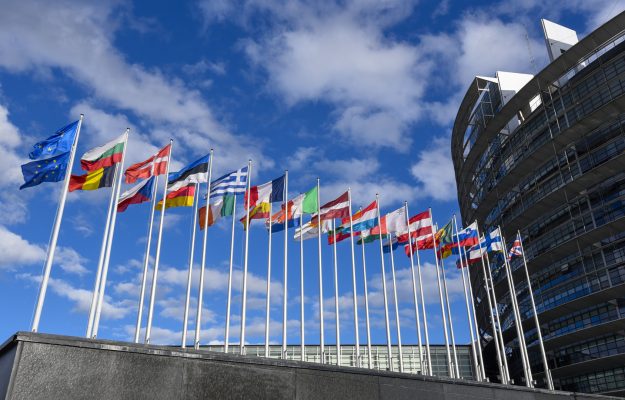FEDERDOC is the National Confederation of Voluntary Consortia for the Protection of the Designations of Italian Wines, led by GianGiacomo Gallarati Scotti Bonaldi, and whose members represent almost all of Italian PDO and PGI wine. FEDERDOC has indicated its priorities to the future members of the EU Parliament, who will be elected in the polls between 6 and 9 June 6th and 9th, which are: to maintain a specific and effective wine policy in Europe, also post-2027 CAP, and (re)build the European quality policy, re adjusting the approach to sustainability as well as healthiness of consumption and products, on the model of PDO and PGI products; invest in support measures for a perennial crop, which requires several years, and investments, to be productive, such as the vine; defend the culture of wine and moderate consumption, and create, through the work of the Commission and the European Parliament, a new institutional cooperation for viticulture. These are the five key points to address, therefore, according to FEDERDOC (some are identical and some are not, to the ones that the Italian Wine Union - UIV, CEEV and FIVI - Italian Federation of Independent Winemakers has outlined). The wine sector in the European Union produces 150 million hectoliters, 61% of global production, vineyards extending 3.2 million hectares, 44% of the world total, and 2% of the EU agricultural area. In Italy, 241.000 wineries, of which 38.000 wine-making companies, production turnover around 14 billion euros, 674.000 hectares of vineyards and more than 21.500 employees. Further, we must not forget that European wine is one of the most exported agricultural products outside the European Union, for a total value of 17 billion euros, and a positive trade balance of 11 billion euros. “Denomination wine is a perfect example of a sector that is constantly modernizing, an at the same time preserving traditions and skills rooted in its different terroirs. Quality products cannot be relocated or copied, and the winemaking model is based on a network of small and medium-sized companies. Many of these companies are often family-run, and create innumerable direct and indirect jobs in rural areas, including thousands of jobs in wine tourism. The wine sector’s contribution to the economy of EU territories”, FEDERDOC writes, “is substantial and indispensable, since in many of the European Union Regions there are no valid alternatives to viticulture. The production of wine has been a way of life in many parts of Europe, for centuries. It is a tradition that is part of the common culture and heritage. Wine is the result of long-lasting work. Wine requires passion and an in-depth knowledge of land use, grape varieties, science and innovation. The required expertise has been passed on and perfected in the winemaking communities by men and women who are proud of their history and their products. Many of Europe’s wine Regions are listed as UNESCO World Heritage Sites, offering unique environments and promoting biodiversity. The wine supply chain faces multiple challenges. As data shows, wine appellations are a high-performance supply chain playing a key role in rural development. However, this balance is fragile”, FEDERDOC continues, “in face of the crises affecting the sector. Economically, commercial, geopolitical and health crises have had a negative impact on the sector, especially on wine, which has been subjected to retaliatory measures (the Boeing issue, for example). Climate change and increasingly frequent adverse weather events (drought, intense rain, frost, disease), are putting a strain on the production capacity of winemakers and also impacting the taste of wine (higher alcohol content, lower acidity). In addition to all of this, there are social and generational changes that have had a profound impact on the way alcoholic beverages are consumed, the result being a sharp decline in wine consumption in Europe. These factors have affected the companies’ cash flow as well their ability to invest. They have therefore led to significant changes, resulting in the loss of cultivated areas, numerous jobs and a definite decrease in the wine supply”.
Copyright © 2000/2026
Contatti: info@winenews.it
Seguici anche su Twitter: @WineNewsIt
Seguici anche su Facebook: @winenewsit
Questo articolo è tratto dall'archivio di WineNews - Tutti i diritti riservati - Copyright © 2000/2026







































































































































































































